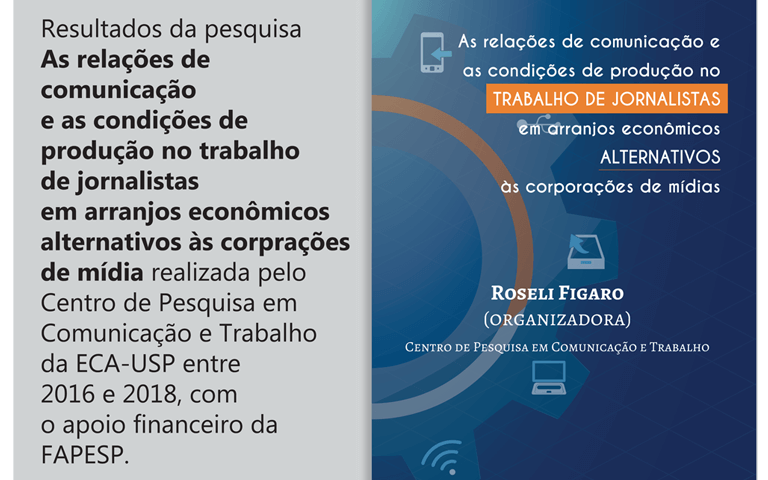The Communication and Work Research Centre, from University of São Paulo, Brazil, presents the results of research that mapped 70 alternative and/or independent arrangements of journalistic labor in São Paulo. The team investigated how journalists work, how they are sustained, and what kind of journalism they practice in these work arrangements.
The research ‘Relations of communication and conditions of production in new alternative arrangements of journalistic labor’ was conducted between 2016 and 2018, funded by Brazilian agencies. Professor Roseli Figaro was the principal investigator and the team had eleven researchers.
The study argue that newsrooms have become virtualized and production processes occur in digital platforms such as social network sites and messaging apps. Thus, labor relations are horizontal: ‘Newsrooms are digital spaces that connects journalists, sources, staff, technical support and logistics. The collaborative work and network occurs fully, in teams with people of different countries and states or of different neighborhoods’, explains Roseli Figaro.
The research presented four phases. In the first, it mapped 70 alternative/independent initiatives, taking as a starting point the Map of Independent Journalism, created by Agência Pública in 2016. Then, the researchers created a typology of initiatives based on self-declaration considering their relation with journalism practices terms such as ‘alternative’ and “‘independent’. In the third step, the researchers conducted interviews with a sample of 26 journalistic initiatives. The last stage involved two focus groups with 15 journalists of these work arrangements.
The journalistic arrangements describe the lack of economic support as the main obstacle to an autonomous journalism practice. ‘These workers support their journalism practice in these arrangements with another jobs, in courses, lectures, events and freelance work for another vehicles. They also search for resources in crowdfunding and from foundations and donations’, Figaro states.
Thus, the Communication and Work Research Center aims to offer empirical findings to rethink journalistic labor in the contemporary society. The precarious work and monopoly of media conglomerates and digital platforms (Big Tech, like Google and Facebook), are impediments to free exercise of journalism.
The Communication and Work Research Center, coordinated by Roseli Figaro, was founded in 2003 and aims to research theses issues: communication processes and production processes; work organization and digital technologies; media workers; language, discourses and work; communication theories and world of work; changes in the world of work and the role of communication; circulation of meanings in the world of work; digital labor and materiality of labor.
Report Link (in Portuguese): https://bit.ly/2BclEe2
Contact: Roseli Figaro – roseli.figaro@gmail.com
